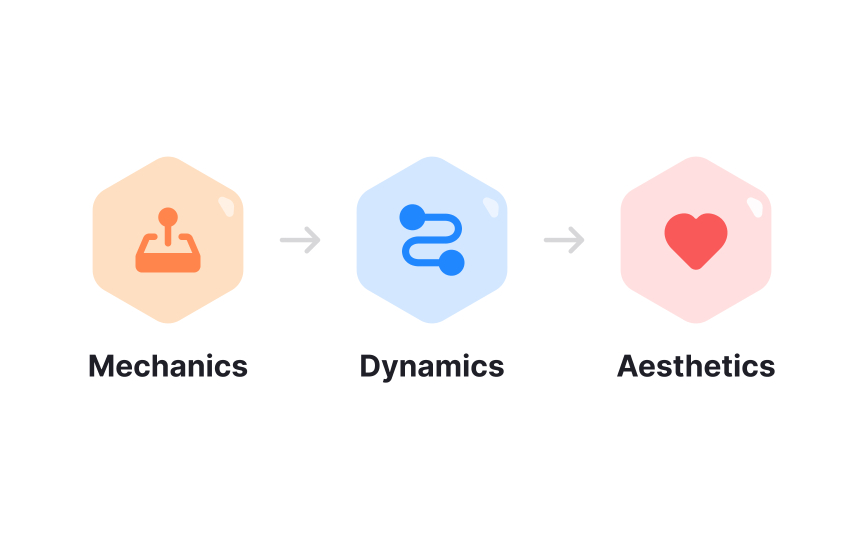The MDA framework
The MDA framework, created by Robin Hunicke, Marc LeBlanc, and Robert Zubek, helps design engaging video games by focusing on 3 key components:
- Mechanics: These are the rules and actions within the gamified system. For example, in a habit-tracking app, mechanics might include logging daily habits, earning streaks for consecutive days, and receiving reminders.
- Dynamics: This is how the mechanics interact in real-time, shaping the user's experience. In the habit-tracking app, dynamics could involve the satisfaction of maintaining streaks, the motivation from competing with friends, and the feedback from daily reminders.
- Aesthetics: These are the emotional responses the gamified system evokes. Aesthetics go beyond just being "fun" and aim to create feelings like accomplishment, motivation, and connection. For example, the sense of achievement when maintaining a streak, the relief from stress when completing daily tasks, and the joy of interacting with a community all contribute to a positive user experience.
By using the MDA framework, you can ensure that game mechanics lead to dynamic interactions that create the desired emotional experiences, making the gamified system engaging and effective.

